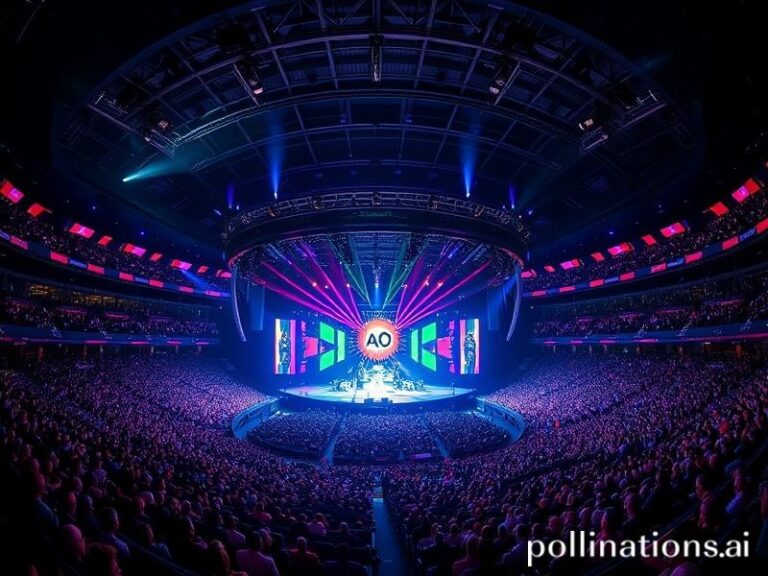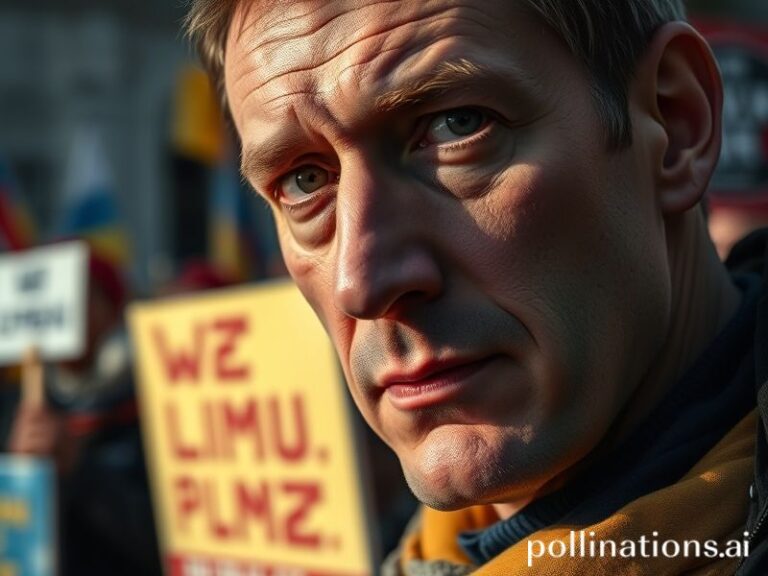World Championships 2025: Earth’s Costliest Show-and-Tell in Singapore
World Championships 2025: The Planet’s Most Expensive Group Therapy Session
By the time the opening cannon fired in Singapore’s newly reclaimed Marina East District this morning, the 2025 World Championships had already outspent three small island nations and generated enough carbon to make a coal lobbyist blush. Delegations from 193 countries—plus the ever-optimistic “Observer State of Mars”—filed past a phalanx of security drones whose facial-recognition software is rumored to identify disappointment in real time. The theme of this year’s fortnight-long extravaganza is “One World, Infinite Egos,” a motto printed on the complimentary tote bags handed to athletes who promptly stuffed them with free protein bars and existential dread.
The championships, a Frankensteinian fusion of sport, e-sport, debate, drone racing, and competitive napping (introduced after the Paris 2024 insomnia epidemic), are less a contest than a geopolitical masquerade ball. Every nation arrives desperate to prove it has moved beyond colonial guilt, supply-chain chaos, or TikTok bans, depending on the week. The United States, still pretending it doesn’t measure success in medal-weight-to-GDP ratios, has dispatched 847 athletes, 300 sports psychologists, and one very tired bald eagle in a climate-controlled kennel. China, never one to be outdone, countered with an equal number of athletes plus a squad of AI coaches whose pep talks are indistinguishable from LinkedIn motivational spam. Meanwhile, the European Union fielded a single, beautifully curated team after a 19-hour plenary session on whose anthem to play if they win. They settled on “Ode to Joy” performed entirely on vuvuzelas.
Global stakes are higher than the price of Singapore condos. Victory here secures not just bragging rights but preferred trade lanes, rare-earth mineral coupons, and the right to host the 2027 championships—essentially a license to print debt. Television rights have been sliced thinner than Iberian ham; Netflix will stream the e-sports, Amazon Prime the drone racing, and a plucky start-up from Lagos secured the rights to competitive napping, promising “eight hours of edge-of-pillow action.” Viewers in 47 languages will watch athletes chase glory while their home governments chase soft-power dopamine.
The environmental cost, dutifully offset by purchasing indulgences—sorry, carbon credits—from a reforestation scheme in Greenland that is, ironically, still under permafrost—has inspired protest art across the city-state. Local satirists projected a looping GIF of the Earth shrugging onto the Marina Bay Sands, captioned, “Fine, you win, I’ll just heat faster.” Organizers responded by banning single-use plastics, then handed out 50,000 branded aluminum water bottles that will inevitably spend eternity in kitchen cabinets beside fondue sets and failed crypto wallets.
Yet amid the choreographed nationalism, genuine moments leak through the cracks. The Syrian refugee e-sports team, competing under the Olympic flag because paperwork is the final boss, stunned the favorites from Silicon Valley in a League of Legends quarterfinal. Their post-match press conference—three teenagers in borrowed hoodies politely asking if anyone had a phone charger—was more moving than any anthem. Similarly, the 73-year-old grandmother from Bhutan who entered competitive napping on a dare broke the 90-minute REM barrier and immediately received sponsorship offers from three mattress companies and one meditation app that definitely does not sell your data to insurance firms.
As the sun sets over a skyline that looks like capitalism ate a geometry textbook, the scoreboard is beside the point. Whether the final tally shows China, the U.S., or the ever-sneaky Nordic alliance on top, historians will remember 2025 as the year the world agreed to meet in one humid city, sweat through identical polyester uniforms, and pretend the games still matter more than the deals signed in the air-conditioned VIP lounges overhead. Somewhere in the athletes’ village, a drone pilot from Kenya is trading pins with a chess grandmaster from Ukraine; they are laughing at the same joke about national budgets. For two weeks, this is the closest humanity gets to a family reunion—loud, expensive, and nobody really wants to host the next one.







